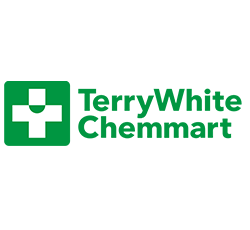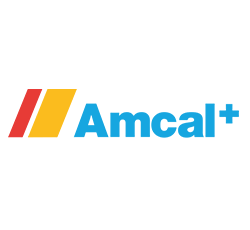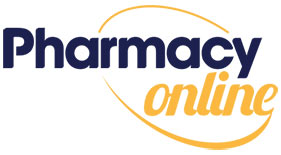Feeding and nutrition
There’s a lot of advice around infant feeding and it can be hard to know what’s right. Like most information when it comes to babies and young children, the safest option is to follow evidence based recommendations. This means that science, rather than personal opinion, forms the basis for the advice.
As new research is done, recommendations on infant feeding change. One thing which hasn’t changed has been the promotion of breastfeeding. Where breastfeeding isn’t possible, infant formula is the safest alternative for babies aged under 12 months.
From around 6 months, babies should be offered a range of solid foods as well as breast milk and/or formula at the right texture and consistency for their developmental age. Some babies are ready for solid foods when they’re younger than 6 months of age. The current recommendation is to offer solids at around 6 months, but not before 4 months.
How can I feed my baby?
You have choices about how you can feed your baby. Breast milk contains all the nutrients babies need to grow and thrive. Some women choose to offer their baby expressed breast milk (EBM) and/or infant formula.
Mixed feeding is an option where there is a combination of:
- breastfeeding, expressed breast milk and formula
- breastfeeding and donor breast milk
- expressed breast milk, formula, and/or donor milk
It can be confusing when deciding on feeding options and it can be helpful to speak with a healthcare professional. Every mother and baby are unique and what’s right for some may not be right for others.
Remember:
- What’s important is that your baby receives the nutrition they need.
- Breastfeeding is a set of learned skills for both mother and baby. It can take some weeks for breastfeeding to become easier.
- Only you can know what’s right for you and your baby. Other people may give you guidance and help but ultimately, you need to decide what’s right for you both.
Signs of readiness for solid foods
Follow your baby’s signs that they are ready. Every baby is an individual and will have their own ways of showing readiness.
For most babies, signs of readiness for solid food includes:
- Having good head and neck control. Your baby needs to be able to sit up unsupported.
- Showing an interest in food, reaching for your food and being interested in what you’re eating.
- Not being satisfied with milk alone. Perhaps waking up through the night for feeds.
- Opening their mouth when you offer them food on a spoon.
Why can’t I offer my baby solids before 6 months of age?
There are good reasons why babies don’t need to be offered solid foods too early:
- Solid foods can cause babies to feel full so they don’t want to drink milk.
- It takes time for a baby’s gut to mature so they can digest food properly.
- Starting solids foods before 4 months can increase the risk of allergies.
Solid food tips
- Start introducing solid foods when your baby shows signs of being ready – around 6 months but not before 4 months.
- You can offer any food, in any order, as long as it’s nutritious and healthy.
- The first foods you offer need to be pureed and smooth. Progress to mashed or chopped food once they’re managing the softer textures.
- Include iron-rich foods from the start.
- When you are introducing allergenic foods, do this one at a time.
- Offer your baby milk feeds first, then solids, until 9 months of age. You can reverse this order after 9 months – solids first, then milk.
What type of foods can I offer my baby?
Iron rich foods will help to supply your baby with the nutrition they need. This is because the iron stores which built up in your baby’s body during pregnancy will start to deplete at around 6 months. Babies need iron for brain and muscle development. Breast milk, although an excellent source of nutrition, is low in iron.
Textures are also important. Most babies progress pretty quickly from eating smooth or finely mashed foods. Over the next few weeks or months, foods with texture which are mashed and chopped are ideal. Avoid offering your baby hard foods which they aren’t able to chew.
By the time your baby is 12 months old, they should be eating the same foods as the rest of the family. You may still need to chop or mash some foods into smaller pieces and cook their vegetables until they’re very soft.
Iron-rich foods include:
- iron-fortified infant cereal – check on the box to see it includes iron.
- minced red meat, poultry and fish
- cooked tofu and legumes
- mashed, cooked egg. Don’t offer your baby raw or runny eggs.
Other healthy foods to mix with iron rich foods:
- vegetables – cooked potato, pumpkin, sweet potato, carrot, broccoli or spinach
- fruit –ripe banana, apple, pear, melon or avocado
- grains – iron fortified rice cereal, oats, bread, roti, naan, rice, noodles and pasta
- dairy foods –full-fat yoghurt and full-fat cheese.
What foods can’t I give my baby?
Some foods and drinks aren’t suitable for young babies. This is because they can increase the chances of babies becoming sick or choking.
Foods to avoid:
- Honey until 12 months – this is to avoid the risk of infant botulism.
- Raw or runny eggs and foods containing raw or undercooked eggs.
- Reduced-fat milk and dairy foods dairy until 2 years – babies need full-fat dairy for growth.
- Whole nuts and hard foods until 4 years because of the choking risk.
Drinks to avoid:
- Pasteurised full-fat cow’s milk – your baby can have this as a main drink only after 12 months.
- Dairy alternatives like soy, goat’s, sheep’s, rice, oat, almond and coconut milk – avoid these until 2 years, unless your GP or child and family health nurse has recommended them for a particular reason.
- Unpasteurised milks – avoid these at all ages, because they can contain harmful bacteria.
- Tea, coffee or sugar-sweetened drinks – avoid these at all ages because of their caffeine and sugar content.
- Fruit juice. Whole fruits are better because they have fibre and help babies develop chewing and feeding skills.
Check with your Child Health Nurse, GP or a paediatric dietician if you have any questions about what to feed your baby.
Written for Multi-Mam by Jane Barry, Midwife and Child Health Nurse, December 2024.







